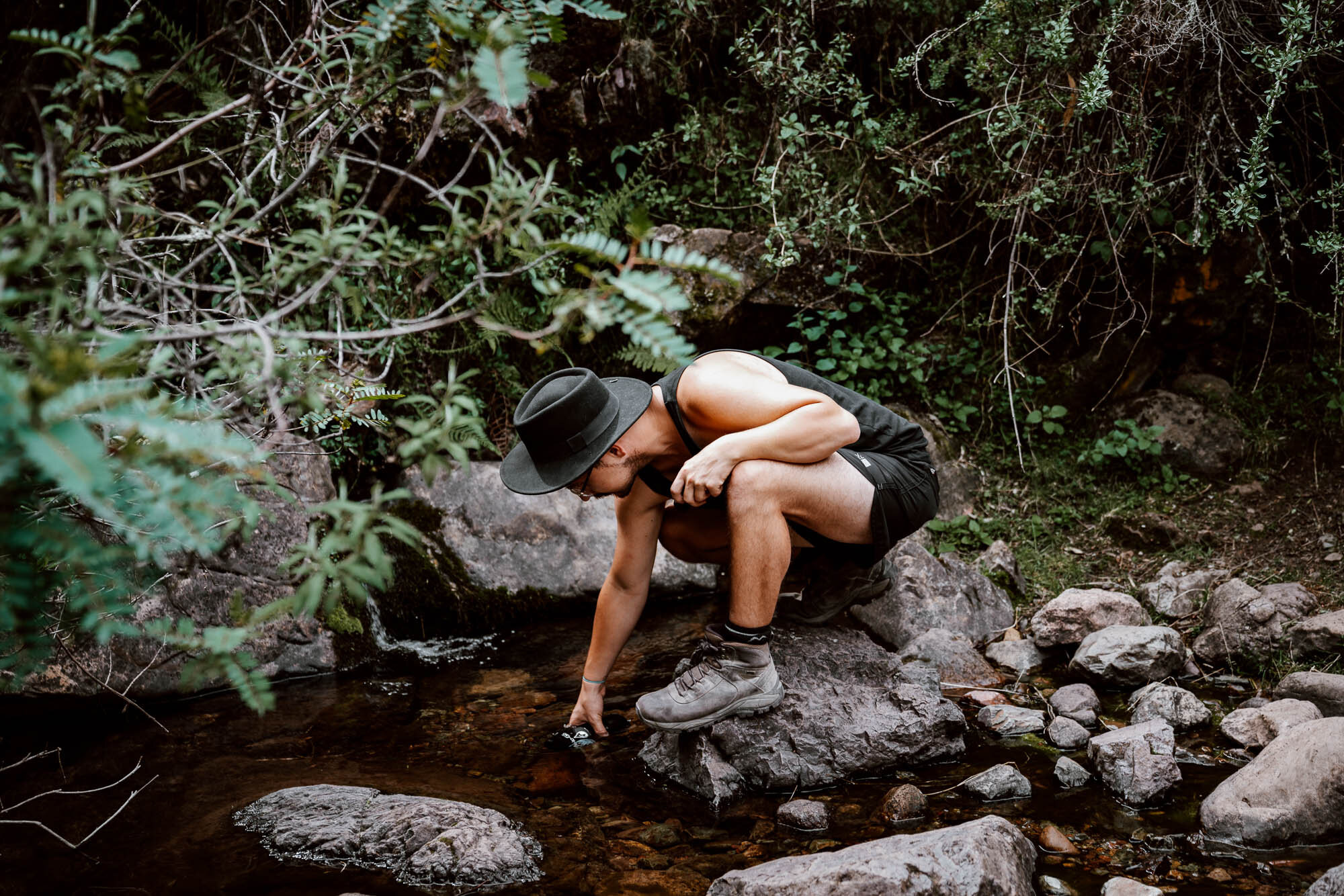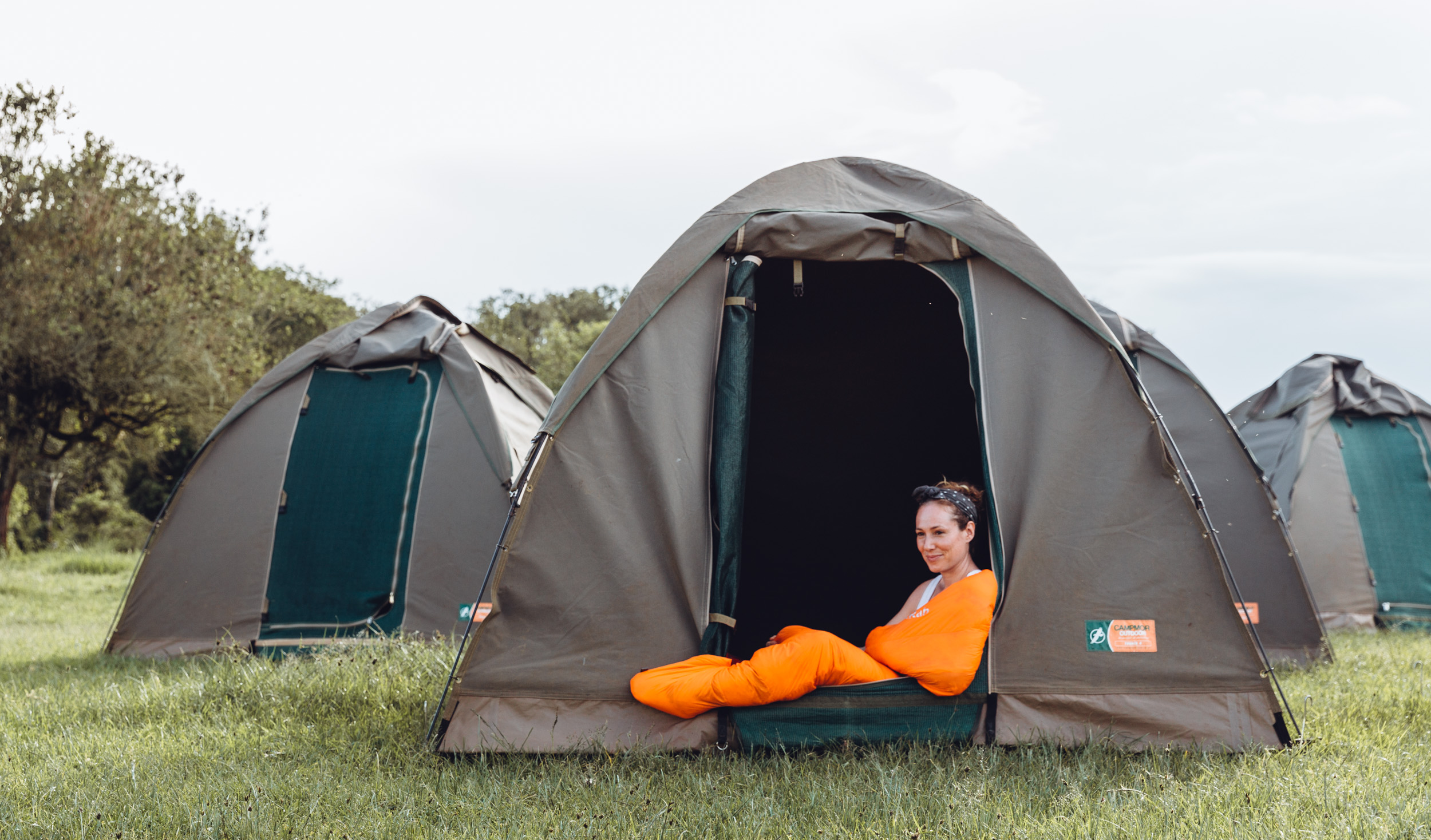You've purchased all the shiny new gadgets to record your trip, whittled down your packing-list to an art-form, and highlighted and underlined the guidebook to plan each and every moment - now you just have to wait until your adventure begins. Right?
Wrong.
There are a few little details that so often get forgotten when you're preparing to leave which can trip you up when you're well, actually on your trip.
So don't stress, here's our guide to making sure you've got them covered - with the 10 essential things to do 48 hours before you leave.
01. Notify Your Bank
It’s always cheaper, safer and more convenient to use a credit/debit card overseas than to exchange money or bring loads of. cash with you.
If plastic is going to be your main or emergency source of money on your adventure, make sure to tell your bank where and when you are going. The last thing you want is for them to cancel or block your cards - when you're legitimately using them abroad - as they think there's been fraudulent activity.
Thankfully, the emergence of mobile-based banks like Starling and Monzo in the UK have removed this requirement for some British travellers. If you are still with a traditional bank however, it’s still recommended to inform them before you use your card abroad.
Read Next | How to Avoid ATM Charges When You Travel
02. Photocopy Your Passport
Border crossings, hostels, vehicle rentals or adventure sports companies may require passport photocopies, so it's useful to have three or four already with you.
It's also advisable to carry a couple of spare passport photos on every trip.
03. Create an Emergency Numbers List
When something bad happens abroad, you don't want to waste time searching for the correct numbers to call. Put together a simple A4 document with all the useful numbers you, your travel companion or a bystander may require in an emergency. We'd suggest contact details for at least the following:
- Next of kin and other important family members.
- Insurance claims helpline
- Country consulate
- Your bank’s lost/stolen card emergency helpline
We bring a couple of paper copies with us, permanently stored in our daypacks with a spare in our main backpack, as well as having a digital copy easily accessible on our mobile phone and email.
And if you still haven't taken out travel insurance a couple of days before you leave - don't despair, there's still time! We recommend True Traveller and World Nomads, whilst you can find out important mistakes to avoid when buying your travel insurance policy in this guide.
04. Cancel Any Bills or Subscriptions
There's nothing more annoying than realising that your expensive annual magazine subscription or gym membership has automatically renewed when you're not going to be in the country for the next twelve months.
Make a list and cancel everything you don't need before you leave; you want as much money for your adventures as possible after all!
It also makes sense to have a forwarding address for all correspondence, and inform all relevant companies or persons of this.
05. Currency Count
Before we leave home, we always make sure we have some local currency for our first few days, and a few emergency dollars. Around $50-$100 of both currencies has worked out best.
You'll usually be able to find an ATM on arrival at the airport, but having enough cash for the first day or two means less stress if you need to get out of the airport quickly or the cash machine aren’t working / charging a high usage fee.
Crisp US dollars are always the best currency to have in an airport, emergency or if you desperately need to exchange money into local currency in the middle of nowhere.
We also recommend bringing a bank card optimised for travel, which charges zero fees for spending or ATM withdrawals overseas, as well as great exchange rates.
Read Next | How To Manage Your Travel Money Better
06. Make Your Phone Travel-Ready
There are some great apps which can help you on the road without a data connection. For example, Google Maps allows you to save lots of maps offline, which continue to work perfectly with your GPS. Google Translate lets you can save an entire language off-line, including useful phrases and it makes sense to take screenshots or download your flight and hotel confirmation too.
Also, familiarise yourself with how to turn off your mobile data in order to avoid roaming charges to avoid huge bills overseas (we recommend just sticking it on aeroplane mode and turning the wifi on/off as required).
Lastly, back-up any important information or treasured photos somewhere safe (in the cloud or on a hard-drive) to avoid losing everything if your phone gets stolen or falls victim to your drunken night out with your new mates from the hostel.
Read Next | 23 Essential Apps for Travellers (coming soon!)
07. Book your First Night's Accommodation
Once we're on the road, we'll usually just turn up to a city and take our chance on finding somewhere for the night. But nobody wants their first night to end up being their worst night - so make sure you book somewhere nice, safe and easy to find before you leave.
To save needless stress, always contact the hostel in advance to find out exactly how to get there from the airport and how much it should cost with a taxi or bus.
Check out our beginner's guide to hostels.
08. Double-Check Flight Times, Connections, and Airport Routes
Right, let's get this clear: you don't need to arrive three hours before your flight, but it's stupid to arrive with only an hour to go!
24 hours before you leave, make sure you double-check when your flight leaves, confirm exactly how much luggage you're restricted to, and then work out how long it should take you to get to the airport and by what time. Then give yourself another thirty-minutes on top as a safety buffer.
You've come this far, there's absolutely no point being late.
Set your alarms, set your reminders, remember where you passport is and make sure it’s with you carry-on the night before!
For long-haul flights, it makes sense to just check-in at the airport - but for short-haul European budget flights, you should always check-in online in advance (and print / download your boarding pass) to avoid a check-in fee at the airport.
Finally, if you’re flying to a destination which requires visas or proof of vaccinations, if you’re doing the necessary arrangements only a couple of days before you fly, then you’re already too late. However, if you’ve done all the visa applications and paperwork, now is the time to double-check, print, verify, collate and store everything in a folder in your daypack, along with your passport, emergency cash, and emergency numbers list.
09. Future-proof Your Hand Luggage
Always plan for the worst and pack your hand luggage not just for the flight, but in the expectation that your luggage is going to get lost/delayed for a few days after you arrive for your adventure.
Make sure it has your key travel documents, cash cards, local currency, some toiletries, chargers, valuables, electronics, converters, and a spare change of clothes.
Read Next | Read Our City Break Packing Essentials post here (coming soon), or find out our packing essentials for any long-term trip here.
10. Charge Your Shit
Those last minute good-bye calls. final updates of your Facebook news feed, and Instagramming the view from the plane can all take their toll on your battery before you've even taken off.
Make sure all the gadgets you're going to use on the plane are full of juice the night before, you don't want them dying on you mid-flight.
The best solution for us, which is also essential once you're on the road, is to pack a portable power bank (this one) which can charge multiple devices.
Bonus Tip - Get A Good Night’s Sleep
Yes, I know we sound like parents. But we’ve learned over the six years of this travel blog and all our travels, that it really isn’t fun anymore to stay up until 1 a.m. packing and stressing for a flight at 6.45 a.m. Start your packing and final preparations preparations two to three days before your flight so that you can pick up any last-minute essentials, focus on the important stuff, and give yourself the best opportunity to actually get a few hours of quality sleep before your flight.



















